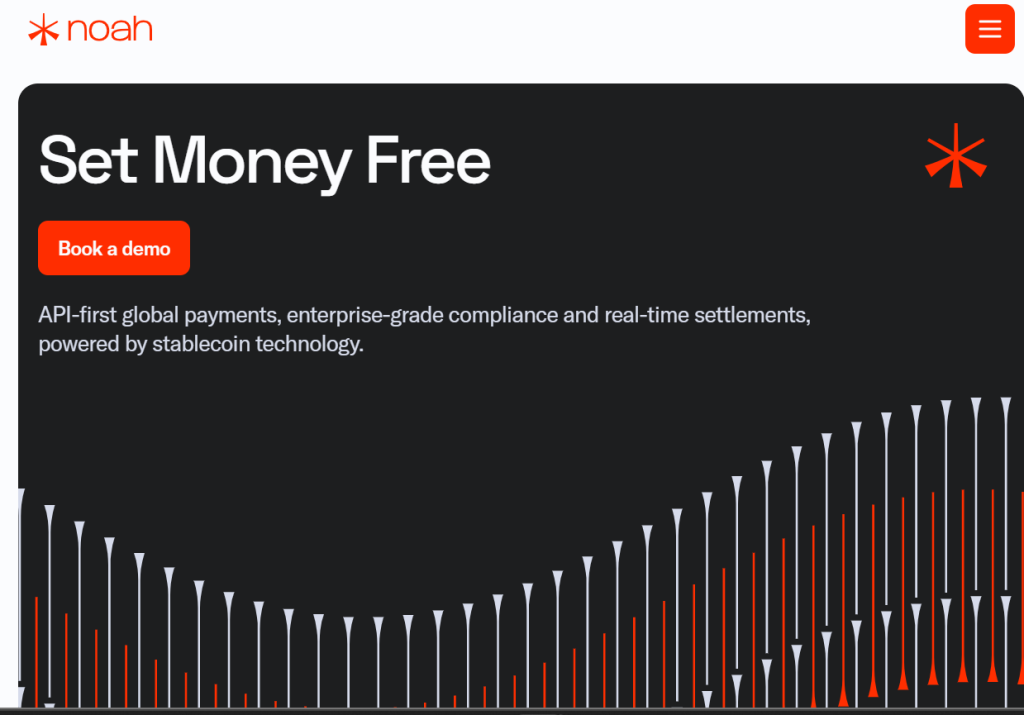Noah Raises $22M Seed Round to Build the Infrastructure for Intergenerational Wealth Transfer
July 5, 2025
byFenoms Start-Ups

Noah, a fintech startup focused on unlocking intergenerational wealth flows, has raised $22 million in seed funding to build a modern platform for the greatest wealth transfer in human history. The round included top-tier investors LocalGlobe, Felix Capital, FJ Labs, Joe Lonsdale, David Helgason, Alexander Matthey, and Tom Stafford.
Founded by Shah Ramezani and Thijn Lamers, Noah is building a digital solution for a problem hiding in plain sight: trillions in assets, properties, and legacies will pass from aging generations to heirs over the next two decades - but most families are unprepared, underserved, and under-advised.
Noah’s vision is simple but profound: build the infrastructure layer that helps families transfer assets, plan together, and sustain financial stewardship across generations.
What Noah Is Actually Building
Noah is not just another wealth management app or estate planning tool - it’s a collaborative platform for families to manage financial continuity over decades.
Core platform capabilities include:
- Multigenerational estate planning tools, including wills, trusts, and digital asset tracking
- Collaborative workspaces for families and financial advisors to manage transitions in real-time
- Integration with banks, investment platforms, and insurance products to create a unified asset picture
- Guided playbooks for inheritance, tax optimization, and family governance
- Smart triggers for life events, such as retirement, passing of a relative, or major asset liquidity
In short, Noah is rethinking wealth as a relational system - not just an individual balance sheet. It’s designing for the human, legal, and emotional complexity of financial transitions.
The Real Wealth Crisis No One Talks About
The timing couldn’t be more urgent. According to Cerulli Associates, $84 trillion in assets is set to transfer from Boomers to younger generations in the U.S. alone over the next 20 years. Globally, that number exceeds $100 trillion - the largest wealth shift in human history.
And yet:
- 67% of people have no estate plan
- 88% of heirs feel unprepared to manage family wealth
- Over 70% of family wealth is lost by the second generation, and 90% by the third (Williams Group Research)
- Less than 10% of HNW families have any kind of formal succession governance (UBS Family Office Report 2023)
We’re entering an era where families have more financial complexity than ever - cross-border assets, digital investments, blended households, and non-traditional heirs - yet they’re still trying to solve 21st-century inheritance problems with 20th-century tools.
A Design Insight Every Founder Should Steal
Here’s where Noah’s approach delivers an insight worth its weight in funding rounds:
Instead of optimizing for the most tech-savvy user, Noah optimized for the most cautious, least replaceable participant in the room - usually an elder decision-maker or trustee. The product had to earn trust before earning clicks.
This flipped the usual startup UX thesis. Rather than reducing friction, Noah intentionally added clarity steps, legal safeguards, and explainer layers for every interaction involving high-stakes decisions. Why? Because in family wealth, a single misstep can break trust that took a lifetime to build.
Most founders race toward minimal friction. But Noah realized that in trust-based systems - legal, health, family, finance - friction isn't the enemy; confusion is.
By leaning into “designed slowness” at key steps - like reviewing beneficiaries, triggering asset transfers, or granting digital power of attorney - Noah elevated confidence instead of speed. It didn’t just make users feel safe; it made them actually safe.
That’s a product insight few founders embrace: Sometimes, designing for speed breaks the very trust you're trying to build. Especially when legacy, family dynamics, or irreversible transactions are involved.
The $153B Market Opportunity
Noah is not alone in spotting the opportunity, but it is among the few building infrastructure instead of point solutions.
- The estate planning market is projected to reach $153 billion by 2031 (Allied Market Research)
- In the U.S., over $30 trillion in liquid wealth is expected to transfer by 2030
- Digital-native heirs (Millennials & Gen Z) will inherit complex portfolios with crypto, crowdfunding assets, and international property
- Wealthtech startups targeting family offices and multi-gen clients are already seeing enterprise partnership traction, with over $2.8B in VC investment last year alone (PitchBook, 2024)
But few platforms are taking a multi-stakeholder, multi-decade view like Noah. Most tools stop at tax optimization or digital will storage. Noah sees the opportunity to own the transition layer - where emotion meets execution, and where relationships, not just regulations, dictate outcomes.
Who Noah Is Built For
Noah’s product is already attracting:
- HNW and mass affluent families planning for future transitions
- Family offices looking to institutionalize governance and continuity
- Financial advisors who need digital coordination tools for heirs and trustees
- Banks, insurers, and legal partners seeking white-label legacy infrastructure
Its long-term ambition: to become the Stripe or Plaid for generational wealth movement - quietly powering inheritance, estate actions, and inter-family finance inside other fintechs and banks.
What’s Next for Noah?
With the $22 million seed funding, Noah is focusing on:
- Expanding legal and compliance coverage across U.S., UK, and EU markets
- Deepening integrations with major wealth platforms, trust companies, and insurance partners
- Launching new tools for real estate, crypto assets, and digital executorship
- Building advisory partnerships with private banks and law firms
- Scaling its product, compliance, and customer teams across regions
Noah isn’t trying to “fix” inheritance. It’s trying to make it intelligent, collaborative, and humane. In doing so, it may become one of the most important fintech infrastructure companies of the next decade.









